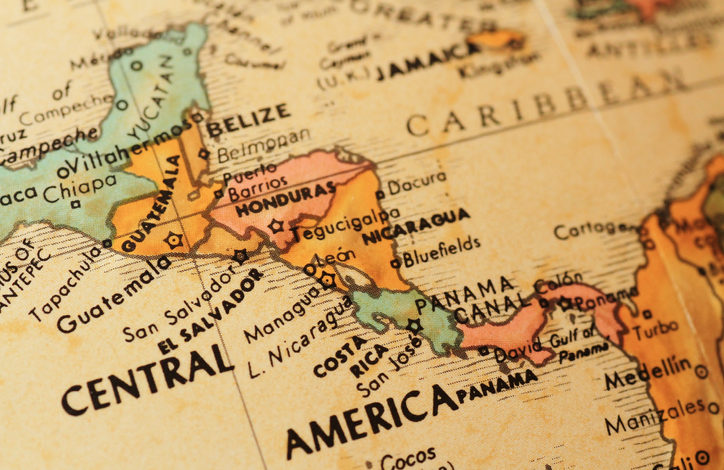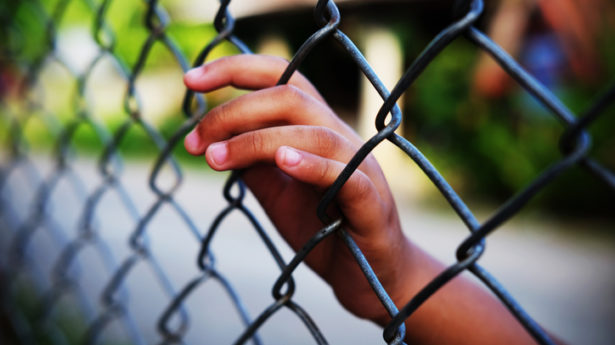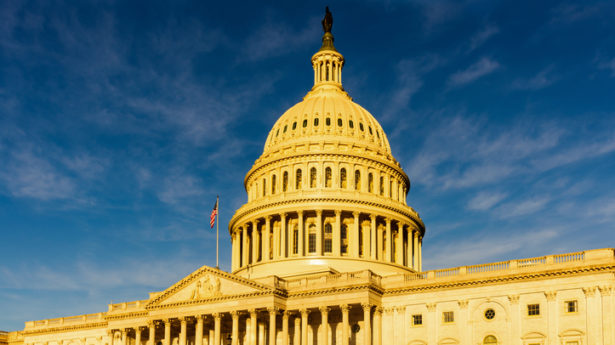The Unitarian Universalist Service Committee advances human rights through grassroots collaborations.
Trump’s Action on Central American Aid Threatens to Exacerbate Problems

By on April 3, 2019
President Trump has taken another outlandish and cruel step in his political assault on Central American asylum-seekers. Acting unilaterally, he declared that he now plans to cut off all aid to El Salvador, Honduras, and Guatemala – by accounts taking even top members of his administration by surprise in doing so.
If carried out, such a policy would be disastrous for the region. The proposed move puts in jeopardy key humanitarian aid programs that provide schools, resources, and livelihood-training for the people of the three Northern Triangle countries of Central America – which include some of the most resource-strapped communities in the hemisphere. While not all U.S. aid programs in Central America are positive or welcome, many support local civil society and should never be subject to sudden and catastrophic cuts.
Trump’s comments made clear that he sees these aid cuts as punishment for Central American governments’ unwillingness to halt the exodus of asylum-seeking families currently leaving the region. Here, Trump again betrays his disregard for the principles of international law. As we have said before, nations cannot prevent their citizens from leaving their own borders without violating fundamental human rights standards.
There is a true sense, though, in which governments in the region are fueling the exodus of asylum-seekers. It is not by failing to hold them prisoner within their borders, however – it is by enabling the conditions of violence and impunity that force so many people to leave in the first place.
In Guatemala, the central government last year used U.S.-supplied military equipment to intimidate a U.N.-backed corruption monitor, undercutting the rule of law in an already unstable context. In Honduras, the current president held onto power through a tainted election, and heads a government that has been complicit in violence against protestors and the criminalization of human rights defenders, as UUSC’s partners have consistently documented.
Far from holding these governments accountable for human rights violations, however, the Trump administration is deepening its collaboration with both. In a bizarre incongruity typical of this administration, just one day before Trump announced his new aid cuts to the region, the Department of Homeland Security announced a new “regional compact” with the governments of El Salvador, Guatemala, and Honduras.
Ostensibly focused on “border security,” the compact promises to increase the military and police footprint in the region focused on combatting irregular migration. While the details of the plan are unknown, it is likely to make it even harder for people to seek asylum across borders; cracking down on illicit migration networks that are often the only means people have to escape violence and persecution, while doing nothing to address the underlying human rights abuses that are forcing them to flee.
The administration’s policies put Central American refugees in a double bind. At the same time Trump is trying to slash humanitarian assistance that can help people stay safely at home, his administration is also tightening the screws of military and law enforcement policies that make it harder to seek safety abroad.
We call on the administration to change its approach. The people of Central America need more genuine humanitarian aid, and less militarization. We call for increased humanitarian assistance to the region that supports local civil society and community-based programs. This aid should be used to help people achieve economic wellbeing without furthering destructive models of “development” that displace communities. Finally, U.S. policy must put aside its long-standing policy of military and political interference in Central America, which has empowered authoritarian governments and caused untold violence and misery in the region.
In these ways, U.S. aid can finally become part of the solution, rather than deepening the problem.
Photo Credit: iStock – Bobtokyoharris

